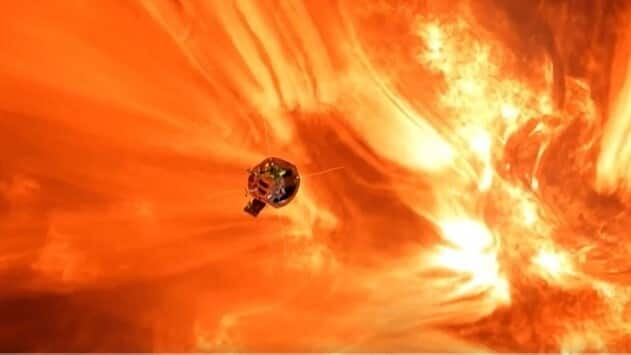
NASA's Parker spacecraft 'touches' Sun in closest ever flyby
What's the story
NASA's Parker Solar Probe has set a new record for the closest approach to the Sun by a man-made object.
The historic event took place on Christmas Eve at 6:40am Eastern time (5:10pm IST), when the probe flew within 3.8 million miles of the Sun's surface.
The achievement beats its own previous record and is over seven times closer than any previous mission, according to Space.com.
Speed record
New speed record during its flyby
The Parker Solar Probe also set a new speed record during its flyby, reaching an incredible 430,000 miles per hour (692,018km per hour). This makes it the fastest man-made object ever created.
To put this into perspective, at such a speed, the probe could travel from Washington D.C. to Tokyo in less than a minute.
Since its launch in 2018, Parker has successfully completed 21 solar flybys, each time edging closer to the Sun.
Exploration
Parker's mission to explore Sun's corona
The Parker Solar Probe's current mission is to go deeper into the Sun's corona or outermost atmosphere.
This area is characterized by extreme conditions with temperatures of 1,400°C and high levels of radiation.
To shield its instruments from these conditions, the spacecraft carries a carbon-composite shield that keeps internal instruments at near room temperature (85°F/29°C) as it passes through the Sun's corona.
Objectives
Aim to solve Sun's mysteries
The Parker Solar Probe is on a mission to help scientists unravel why the Sun's corona is significantly hotter than its surface.
It also seeks to understand other solar phenomena like the origin of solar wind and formation of coronal mass ejections.
These studies are crucial as solar wind can cause auroras on Earth and potentially disrupt power grids and communication systems.
Future flybys
2 more close passes in 2025
The Parker Solar Probe is named after Eugene Parker, who first predicted solar wind.
The probe has already made significant discoveries like detecting magnetic "switchbacks" in the solar wind. More insights are expected as it ventures further into the Sun's atmosphere.
The recent flyby is the first of three close passes, with the next two scheduled for March 22 and June 19, 2025.